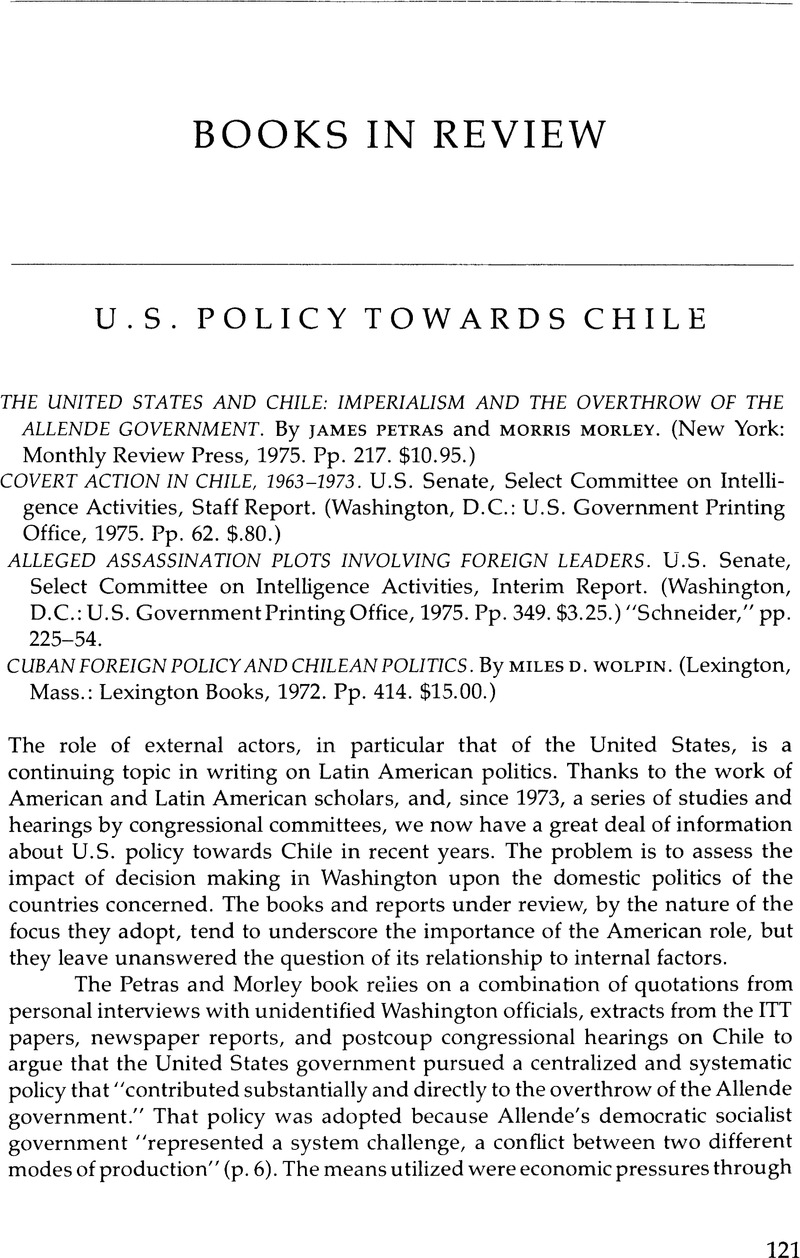Published online by Cambridge University Press: 24 October 2022

1. Immediately after the Allende election, the CIA produced an intelligence memorandum that concluded “the United States has no vital interests within Chile. There would however be tangible economic losses” (Assassination report, p. 229). On the international banks, see the Congressional Research Service Study entitled “The Multilateral Development Banks and the Suspension of Lending to Allende's Chile,” by Jonathan Sanford, reprinted in Francisco Orrego, ed., Chile, A Balanced View (Santiago: Institute of International Studies, 1975), and House Foreign Affairs Committee, Subcommittee on Inter-American Affairs, The United States and Chile during the Allende Years (Washington: U.S. Government Printing Office, 1975). The issuance of NSDM 93 in November 1970 modifies the conclusion of my article “The Invisible Blockade and the Overthrow of Allende” (Foreign Affairs 52, no 2 [January 1974]), that U.S. economic pressure resulted principally from Allende's refusal in October 1971 to compensate the major American copper companies for the nationalization of their Chilean copper holdings. However, the article's main thesis, that external economic pressures were not the cause of Allende's overthrow, still stands.
2. The declassified cable of 1 October 1971 from Ambassador Korry, describing the lengthy negotiations, appears on pp. 128-35 of the 4-5 December 1975 Hearings of the Select Committee, published as Intelligence Activities, Volume 7, Covert Action (Washington, D.C.: U.S. Government Printing Office, 1976).